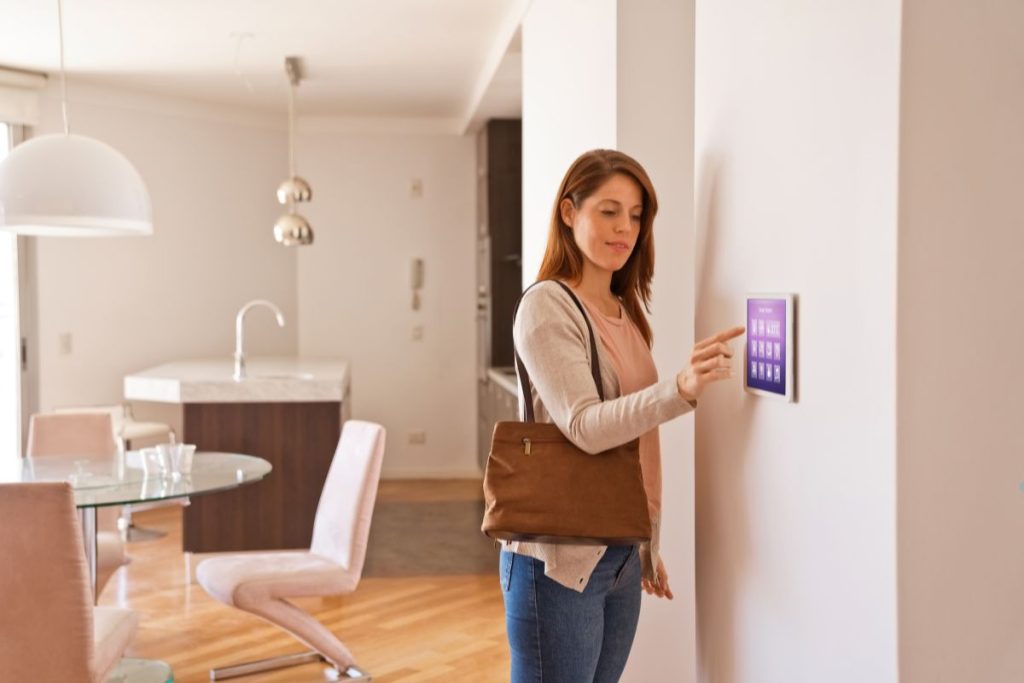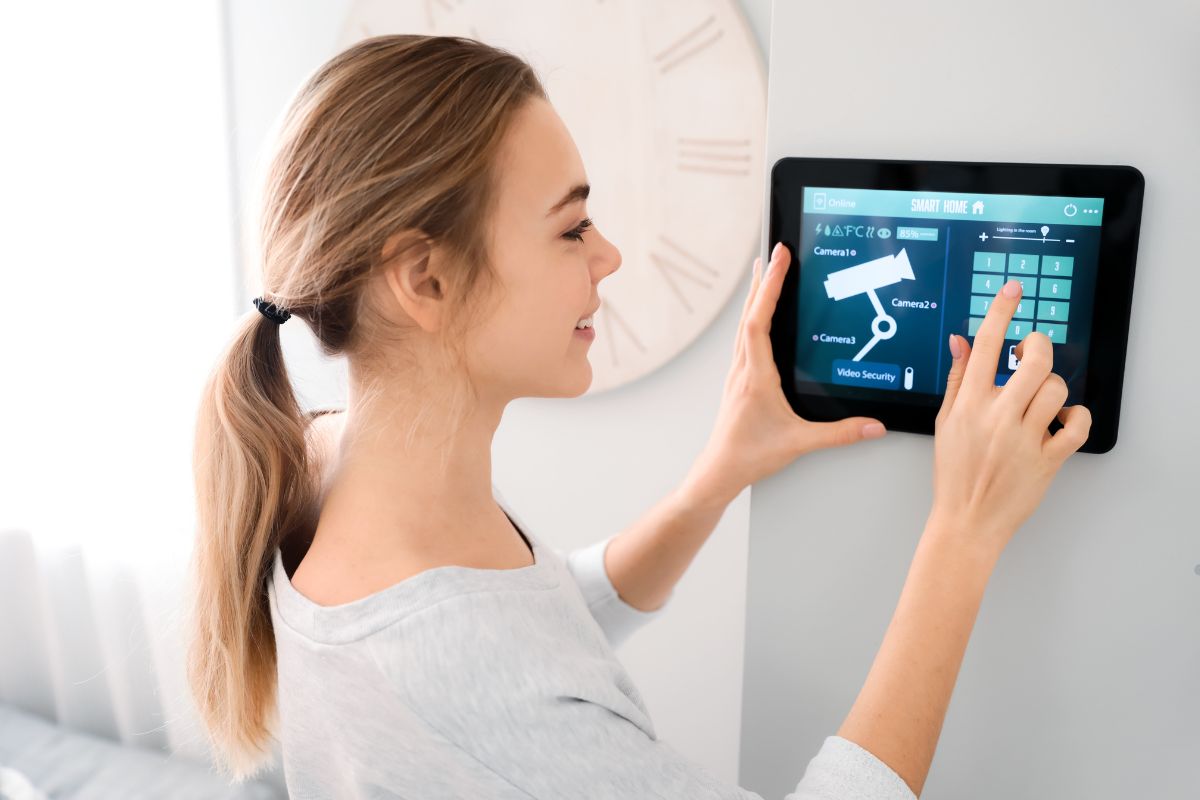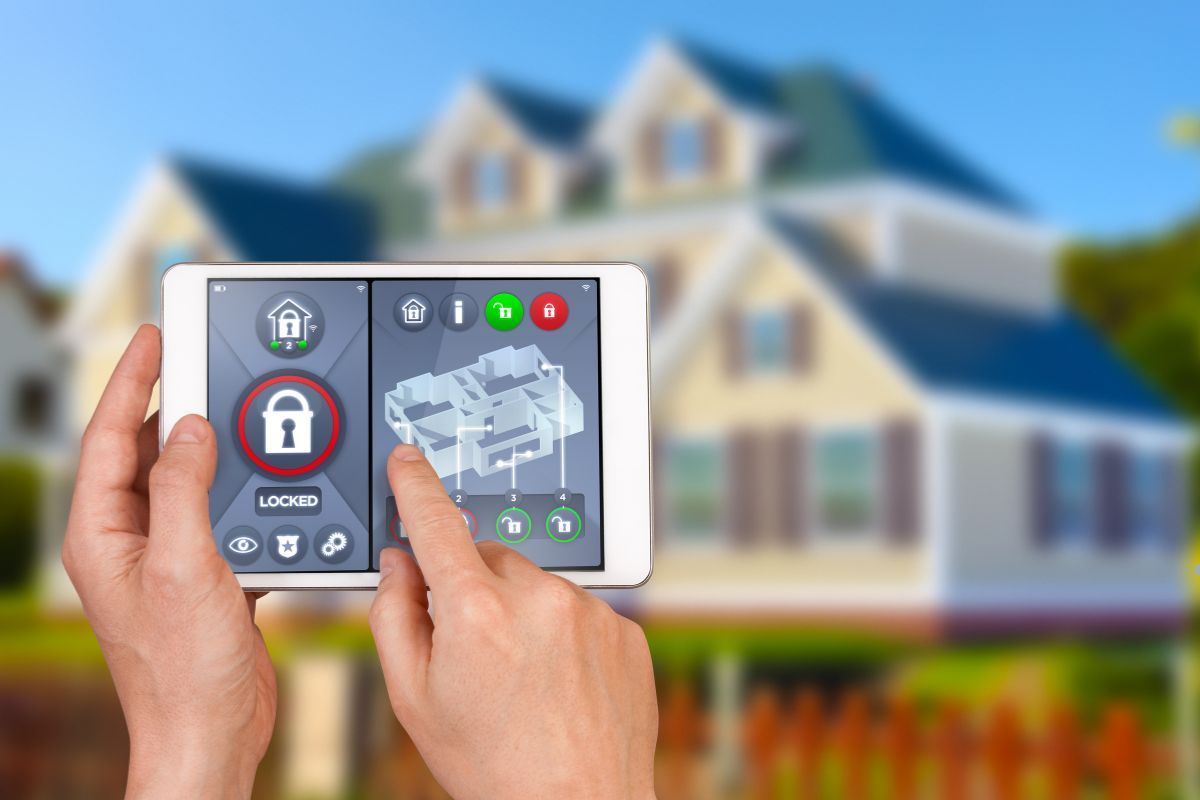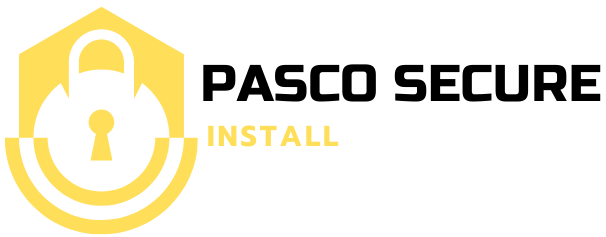
Your home is your sanctuary, and ensuring its safety and security is paramount. Modern home security systems offer a wealth of features, from basic entry-point monitoring to sophisticated smart home integration and 24/7 professional monitoring. This guide will walk you through the essential features to expect when installing a home security system, helping you make informed decisions to protect your family and property.
The Evolution of Home Security
Home security has evolved far beyond basic alarm systems. Modern solutions are smart, interconnected, and highly customizable, providing an unmatched level of protection and peace of mind. With advancements in technology, homeowners now have access to cutting-edge security features tailored to their specific needs and budgets. As crime trends shift and innovations continue, staying informed about the latest security options is essential for keeping your loved ones and valuables safe. We specialize in state-of-the-art home security solutions, from smart surveillance cameras and motion sensors to full home automation systems.
Why Home Security is Essential in Today’s World

In today’s world, home security is more critical than ever. A reliable system not only deters potential intruders but also provides a rapid response in case of emergencies. Beyond preventing burglaries, a comprehensive security system can protect against fire, carbon monoxide leaks, and even water damage. Investing in home security is an investment in your family’s safety and well-being, providing peace of mind knowing that your home is protected around the clock.
Core Security System Features
Entry Point Monitoring
The foundation of any home security system is entry point monitoring. This involves securing doors and windows, the most common points of entry for burglars for their intensions.
Door and Window Sensors
Door and window sensors are simple yet effective devices that trigger an alarm when a door or window is opened. These sensors are typically small and discreet, easily installed on any door or window frame. When the sensor is triggered, it sends a signal to the control panel, activating the alarm system.
Motion Detectors
Motion detectors use infrared or microwave technology to detect movement within a specific area. These devices are strategically placed to cover hallways, living rooms, and other high-traffic areas. When motion is detected, the alarm system is activated, alerting homeowners and, if professionally monitored, the monitoring center.
Glass Break Sensors
Glass break sensors are designed to detect the sound of breaking glass. These sensors are particularly useful for protecting large windows and glass doors. When glass breaks, the sensor picks up the specific frequency and triggers the alarm, providing an additional layer of security.
Advanced Technology Integration
Modern home security systems go beyond basic monitoring with advanced technology integration, offering enhanced control and convenience.
Smart Home Integration
Integrating your security system with smart home devices allows you to control various aspects of your home remotely.
Smart Locks
Smart locks replace traditional locks with electronic versions that can be controlled via a smartphone or keypad. This allows you to lock and unlock your doors remotely, grant access to visitors, and receive notifications when someone enters or exits your home. Smart locks add an extra layer of security and convenience to your home.
Smart Lighting
Smart lighting systems can be programmed to turn on and off at specific times, creating the illusion that someone is home even when you’re away. This can deter potential intruders and enhance your home’s security. Smart lighting can also be integrated with your security system to automatically turn on lights when an alarm is triggered.
Video Surveillance
Video surveillance is a critical component of modern home security, providing visual evidence of any suspicious activity.
Security Cameras
Security cameras come in various types, including wired, wireless, indoor, outdoor, and doorbell cameras. Wireless cameras offer easy installation and flexibility, while wired cameras provide a more stable connection. Indoor cameras monitor activity inside your home, while outdoor cameras protect your property’s perimeter. Doorbell cameras allow you to see and speak to visitors remotely, enhancing your home’s security.
Remote Monitoring
With remote monitoring, you can access your security system anytime, anywhere using your smartphone or tablet. View live video feeds, arm or disarm your system with a tap, and receive real-time alerts about any activity at your home. Enjoy peace of mind knowing your home is always within reach—whether you’re at work, on vacation, or just out for the day. Call us today! Let our experts help you set up a smart security system tailored to your needs.
Professional Monitoring Services
While DIY security systems offer some level of protection, professional monitoring services provide an added layer of security and peace of mind.
24/7 Monitoring
Professional monitoring services provide round-the-clock surveillance of your home. Trained professionals monitor your alarm system and respond to any alerts, ensuring that help is on the way in case of an emergency.
Response Time
A quick response time is crucial in emergency situations. Professional monitoring services prioritize rapid response, dispatching emergency responders as quickly as possible. The faster the response, the greater the chance of preventing or minimizing damage.
Emergency Dispatch
Professional monitoring services dispatch emergency responders, including police, fire, and medical personnel, when an alarm is triggered. This ensures that the appropriate help arrives quickly, providing essential assistance in emergency situations.
Two-Way Communication
Two-way communication allows you to speak directly with the monitoring center in case of an emergency. This feature allows the monitoring center to verify the alarm and provide assistance, ensuring that the appropriate action is taken.
Environmental Monitoring
Beyond intrusion detection, home security systems can also protect against environmental hazards.
Smoke Detectors
Smoke detectors are essential for fire safety, alerting you to the presence of smoke and fire. When connected to your security system, smoke detectors can automatically notify the monitoring center, ensuring that emergency responders are dispatched quickly.
Carbon Monoxide Detectors
Carbon monoxide (CO) is a deadly, odorless gas. Carbon monoxide detectors alert you to the presence of CO, protecting you and your family from CO poisoning. When connected to your security system, CO detectors can automatically notify the monitoring center, ensuring that emergency responders are dispatched quickly.
Water Leak Detection
Water leaks can cause significant damage to your home. Water leak detectors alert you to the presence of water, allowing you to take action before significant damage occurs. When connected to your security system, water leak detectors can automatically notify the monitoring center, ensuring that help is on the way.
Customization and Scalability
Home security systems should be tailored to your individual needs and scalable to accommodate future changes.
Tailoring to Individual Needs
System Customization
Home security systems can be customized to fit different home sizes, layouts, and security needs. You can choose the components that are most important to you, creating a system that provides the level of protection you need.
Adding Components
As your needs change, you can add components to your security system. This allows you to expand your system over time, providing ongoing protection as your family grows and your security needs evolve.
DIY vs. Professional Installation
DIY Installation
DIY home security systems offer a more affordable option, allowing you to install the system yourself. However, DIY systems may require technical expertise and may not provide the same level of security as professionally installed systems.
Professional Installation
Professional installation ensures that your security system is installed correctly and functions properly. Professional installers have the expertise to properly place sensors, configure the system, and ensure that it is working effectively.
Choosing the Right Provider

Choosing the right security provider is crucial for ensuring the safety and security of your home.
Research and Reviews
Checking Credentials
Before choosing a security provider, it’s important to research their credentials and reputation. Check online reviews, verify their licensing, and ensure that they have a proven track record of providing reliable security services.
Comparing Quotes
Obtain multiple quotes from different security providers to compare pricing and services. This will help you find the best value for your money and ensure that you are getting the right level of protection for your home.
Contract Terms
Carefully review the contract terms before signing an agreement with a security provider. Pay attention to cancellation policies, contract length, and any hidden fees. Make sure you understand the terms of the contract before committing to a long-term agreement.
Securing Your Future
Investing in a comprehensive home security system means investing in your family’s safety, peace of mind, and well-being. By understanding the key features of modern security solutions and selecting a trusted provider, you can effectively safeguard your home and loved ones from potential threats. Don’t leave your security to chance—call us today! Our experts are ready to help you find the perfect security solution for your home.
FAQs
What is the average cost of a home security system?
The cost of a home security system varies depending on the features, monitoring services, and installation costs. Basic systems can start around $200, while more advanced systems with professional monitoring can cost several hundred dollars per month.
How does professional monitoring work?
Professional monitoring services provide 24/7 surveillance of your home. Trained professionals monitor your alarm system and respond to any alerts, dispatching emergency responders as needed.
Can I control my security system from my smartphone?
Yes, many modern security systems offer smartphone integration, allowing you to arm or disarm your system, view live video feeds, and receive notifications of any activity.
What happens if my alarm goes off?
If your alarm goes off, the monitoring center will attempt to contact you to verify the alarm. If they are unable to reach you or if they confirm that there is an emergency, they will dispatch emergency responders to your home.
How do I choose the right security company?
Before choosing a security provider, take the time to research different companies, verify their credentials, compare pricing, and carefully review contract terms. Opt for a provider with a strong reputation and a proven track record of delivering reliable, high-quality security services. Need expert security solutions? Contact us today! Our team is ready to help protect your home with top-tier security systems tailored to your needs.
